A little while back – the least interesting way to start an anecdote – I was talking about buying a bunch of Nintendo DS cartridges for games. Some of them were games I’d traded away to stores, some were games I’d wanted for a while and never got around to playing, and some were even games I’d fully completed on emulators. I’d gotten a bug about wanting those physical cartridges and it felt good to find them. But one reaction I got more than once was, “Why not just emulate them?” or “There’s a cartridge you can buy with a microSD slot to load up games!”
Which, yes, I know. I’m not new here. I’m not doing it because I believe it’s morally correct to only have the official copies – although I do kind of feel that way about brand new games whose sales could make or break dev teams. I’m doing it because companies are making it far harder to get my hands on these games in any form and – more importantly – keep them as something I actually own.
I’m not usually a sucker for physical media. True, I’d love to have a big, well-lit shelf lined with every video game I’ve ever purchased. I’d love to have an entire wall of decades of buying and collecting and trading games. But I can’t. I live in a small New York City apartment that barely has enough room for pots and pans, let alone a self-designed kiosk featuring an entire history of electronic entertainment. Hell, when I try to host a game night, I end up having to move around furniture to make it work.
I’m saying I ain’t got much space going on here, folks. So digital media – and emulating old games for that sake – has always appealed to me. More than the direct hit of satisfaction in getting the game immediately, I appreciated the fact that I didn’t need to stuff an old CD book or fill another bin with games. I knew there were downsides, but oh, the convenience! That has since ended. I’m back on my physical media game (*where possible, not every company can afford a physical release, etc., etc.). Because, honestly, I should be and I should’ve always been.
No, really. I know we all talk about this. I know we all nod our heads and solemnly agree that this is a problem and then go right back to buying digital games as our first option. I get this all seems obvious – and I’m definitely preaching to the choir – but this is one of those things we know but find it hard to practice. I understand, and actually agree, on a lot of levels. It’s easier for me to open a game that’s downloaded to my Nintendo Switch than it is to use my fingernails to open a tiny flap on the system and swap out little cartridges. So I kind of hate that I have to try to be better about buying physical versions. The thing is, this is an issue that’s going from “we should be politely concerned about this as mature appreciators of art” to “yep, it’s once again way worse than we thought.”
New Laws Make Owning Games Harder
If you haven’t heard, the US Copyright Office has decided it will not expand a DMCA rules exemption that would make it easier for historians and archivists to preserve and share games for study. So, that’s bad. A lot of game companies that compromise the Entertainment Software Association have pushed against this exemption for a while now and they finally got it more or less written in stone. For their part, the companies argue that even their dormant IP and abandoned games could be revived and re-released, which is true. That said, I’d argue it’s also true that it’s easier to appreciate and get excited about dormant IP and abandoned games when fans can rediscover them. Or, to use an adjacent industry as an example, classic films get fancy new releases after the fans make them cult films. Wait, never mind; I’ve started buying those fancy films on disc again because that side of things ain’t going much better!
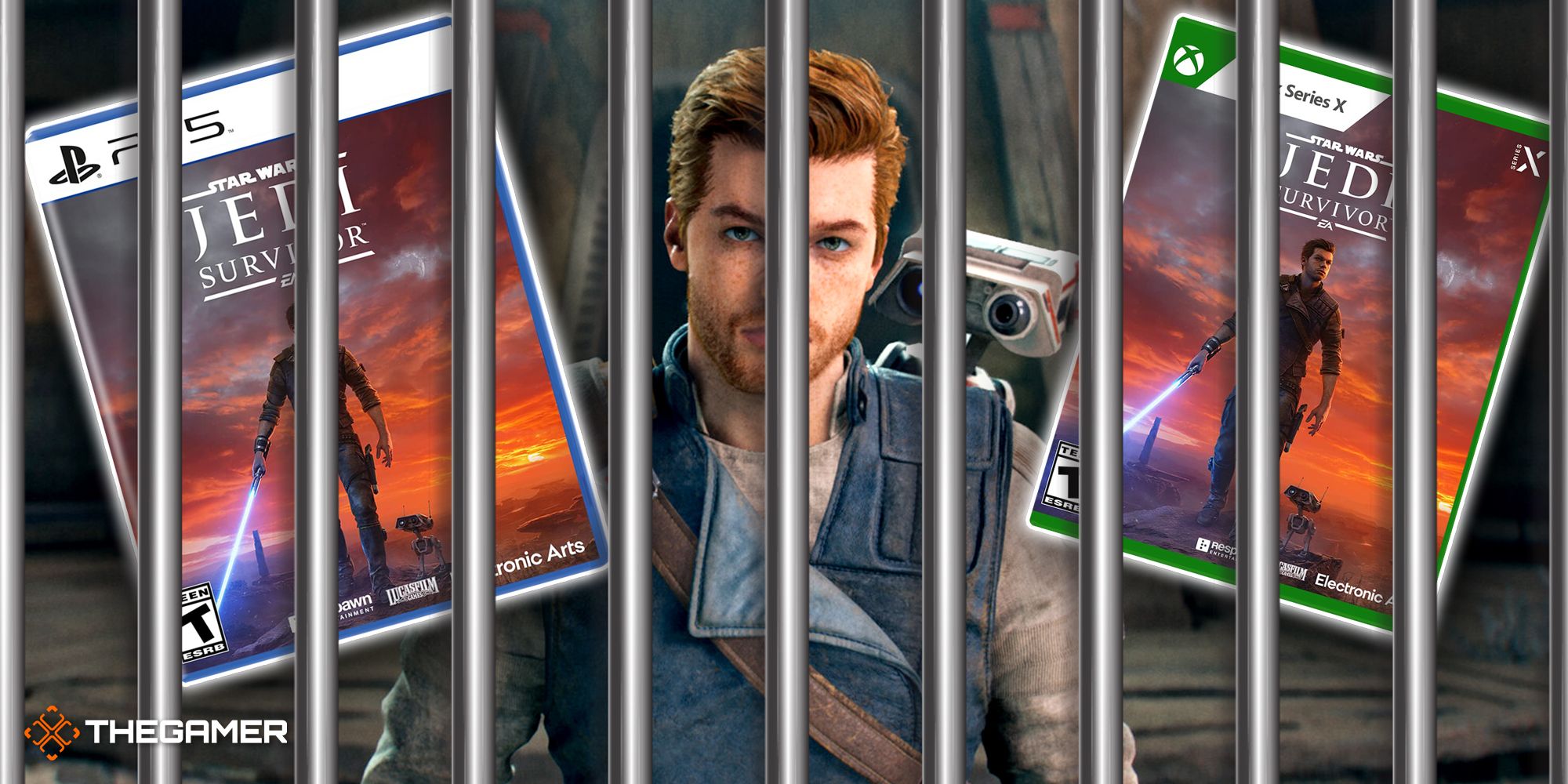
Related
What Jedi: Survivor Is Doing With Physical Copies Should be Illegal
Physical copies of Star Wars Jedi: Survivor aren’t actual copies, but keys that unlock access to a digital version.
Between the DMCA decision and the recent California law that digital storefronts have to be clear that they’re selling licenses to games rather than the games themselves is a big old reminder that the walls are closing in on actually owning games. Yes, I know we know this. And yes, some storefronts like GOG are clear that you actually do own the game in so much as you can legally download all the installers and keep playing it as long as you have them. And even more so, yes, I recognize that emulation was always both a godsend and a third rail, especially when apps can emulate leaked modern games before they go on sale. That’s all well and good. But we’re at a place where old ROMs are disappearing, owning games is becoming harder, and even the Internet Archive as a whole itself isn’t safe.
So I’ve gone back to buying games where I can, whether they be old or used. I’m glad companies like Limited Run Games are re-releasing physical copies of old games – including many on their original hardware. I’m glad that other companies are making consoles that actually play old cartridges. Neither of these things are new, but they’re at least making a return to physical media easier if not nearly 100 percent possible at all times. Again, I acknowledge that not every company has the budget or the ability to print copies of their game – especially indie titles made by tiny teams just trying to break in.
But I love having physical copies, even when I can just load up a ROM of an old game. That doesn’t mean I’m done loading up ROMs, but there’s a comfort to knowing that nobody can take it away either. I mean, a fire or a flood or a masked bandit could take them away, but that’s neither here nor there. As long as these cartridges and discs are in my possession and the hardware is in my possession, these games are mine. I don’t just have permission to use them until that permission might be revoked. I don’t have to jailbreak a product that I bought for myself just to know I can play it at a later date. And I don’t need to worry that a famous flop will disappear from my hard drive when – and I’m being serious here – there’s nothing I love more than a famous flop.
There can be a bit of snobbery around physical media, which I’ve never loved. Physical media is now often seen as a luxury – maybe because the most-promoted tangible, made-from-actual-plastic releases are often part of collector’s editions. Too bad even those have often fallen to the horror of everything being physical except the game itself. But physical media doesn’t need to be fancy or something that’s only for collector’s or an “Aren’t I Brave?” moral stance. It can just be something we try to own to prevent companies from stealing gaming history from under us. It’s not always possible. It’s not always easy. But it’s worth it.
And if you think that’s annoying, you should see the video game strategy guides I’ve been hoarding.
Source link
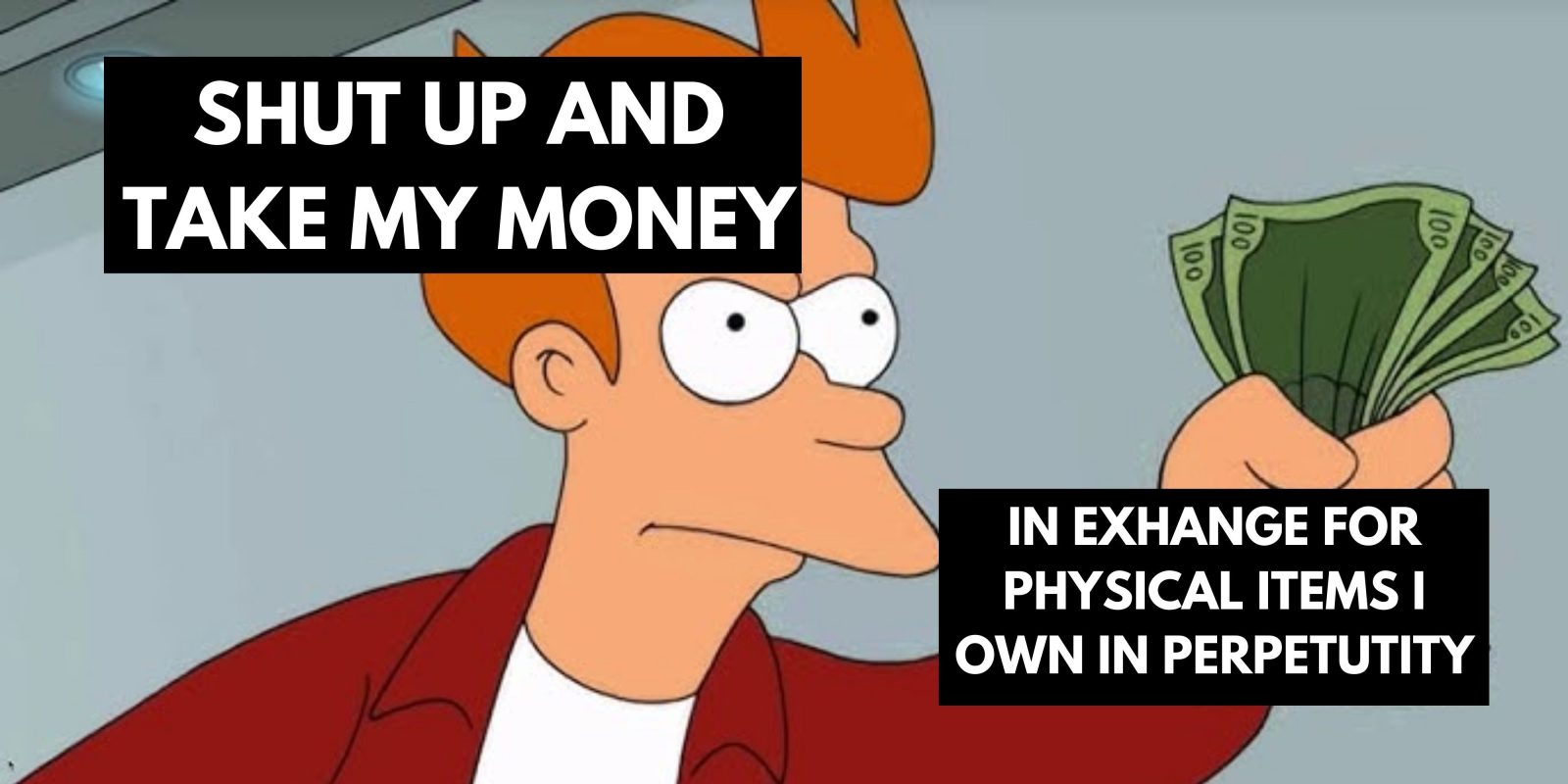

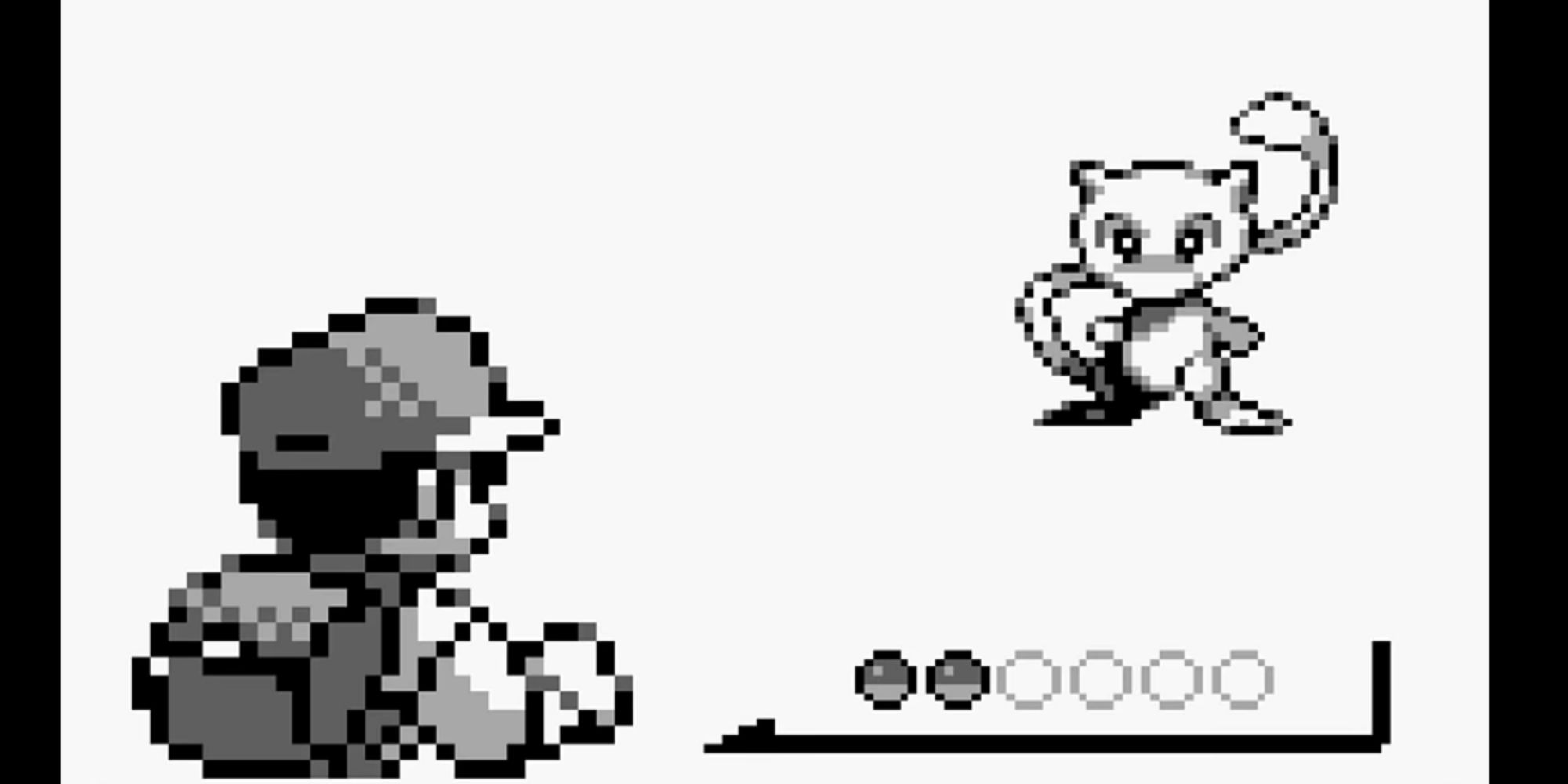
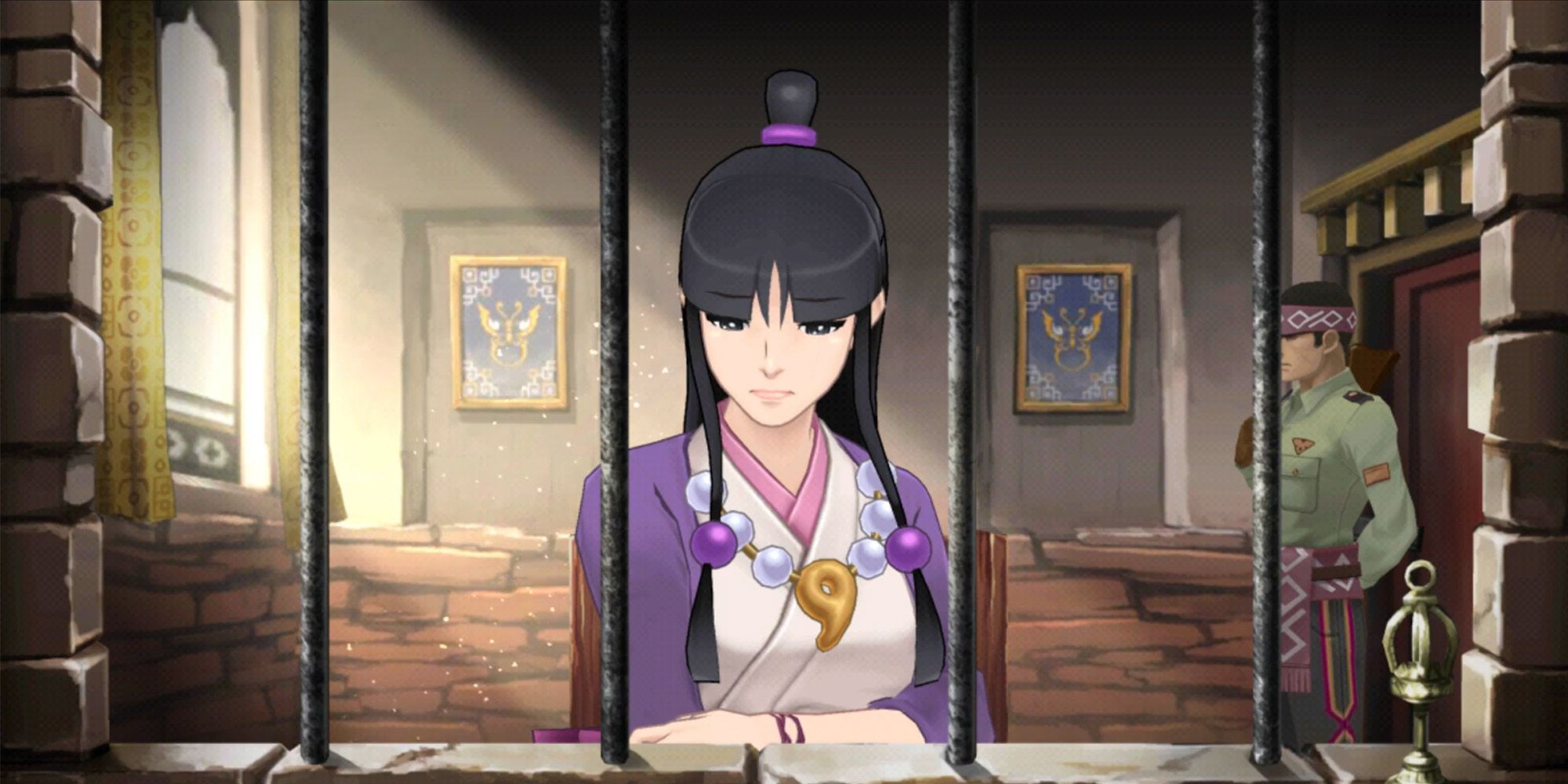




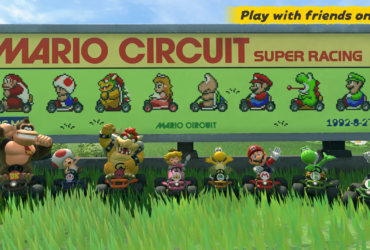



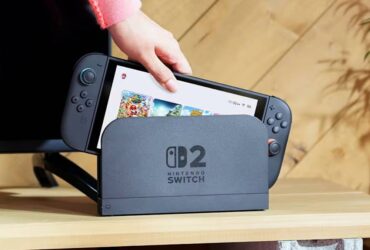
Leave a Reply